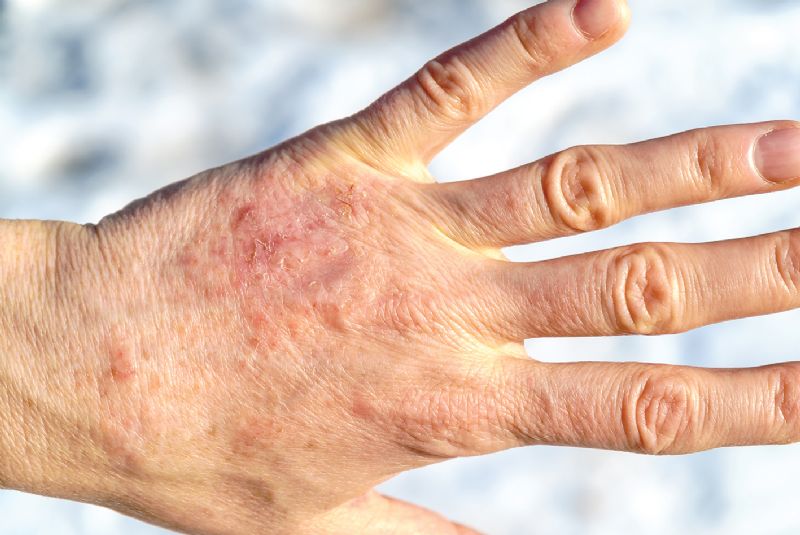- Home
- News, Articles & Reviews
We are hiring! Please click here to join our growing magazine delivery team in Gloucestershire!

Psoriasis pain
All Areas > Health & Beauty > Medical Health
Author: Holly Hannigan, Posted: Wednesday, 23rd September 2020, 09:00
Psoriasis is a common chronic skin condition, which causes whitish-silver scales that develop thick red patches around them, and can sometimes crack and bleed.
This condition is thought to be linked to an autoimmune response from the body that causes it to over-produce skin cells. Typically, skin cells grow deep in the skin and slowly rise to the surface. Eventually, they fall off. Skin cells are normally made and replaced every 3-4 weeks, but in psoriasis this process only takes 3-7 days, meaning skin cells don’t have time to fall off.
Tenderness, pain and swelling in the joints
It is common for these scales to develop on joints, such as elbows and knees, but they can appear anywhere on the body including the rarer form of psoriasis in the nails. People often develop tenderness, pain and swelling in the joints and connective tissue, which is known as psoriatic arthritis.
Most people with psoriasis go through ‘cycles’ of symptoms. The condition may cause severe symptoms for a few days or weeks, and then the symptoms may clear up and be almost unnoticeable. Then, in a few weeks, or if made worse by a common psoriasis trigger, the condition may flare up again. Sometimes, symptoms of psoriasis disappear completely.
Genetics and the immune system
Doctors are unclear as to what causes psoriasis. However, thanks to decades of research, they have a general idea of two key factors: genetics and the immune system. External ‘triggers’ may start a new bout of psoriasis. These triggers aren’t the same for everyone and they may also change over time for you.
Stress is a big trigger
As with many autoimmune conditions, stress is one of the biggest triggers for flare ups. Making sure you practice daily relaxation techniques such as meditation, breathwork, hypnosis and mindfulness will help you manage any stressful situations better.
Drinking excessive alcohol, injuries to the skin (e.g. cuts or sunburn) and throat infections have been shown to be external triggers, along with some medications.
Treatments include:
• Topical creams and ointments applied directly to the skin help reduce mild to moderate psoriasis.
• Oral or injected medications. Many of these medications have severe side effects so Doctors usually prescribe them for short periods of time for people with moderate to severe psoriasis.
• Phototherapy – ultraviolet (UV) or natural light kills the overactive white blood cells that are attacking healthy skin cells and causing the rapid cell growth. Both UVA and UVB light may be helpful in reducing symptoms of mild to moderate psoriasis.
It is important to look after your mental and emotional well-being if you suffer with psoriasis, as it can cause low self-esteem and depression, often leaving people feeling isolated because of the effect it has on their appearance.
Please speak to your GP if you are struggling with Psoriasis or the emotional impact of having it. You can find more information at www.nhs.uk/conditions/PsoriasisCopyright © 2026 The Local Answer Limited.
Unauthorized use and/or duplication of this material without express and written permission from this site's author and/or owner is strictly prohibited. Excerpts and links may be used, provided that full and clear credit is given to The Local Answer Limited and thelocalanswer.co.uk with appropriate and specific direction to the original content.More articles you may be interested in...


© 2026 The Local Answer Limited - Registered in England and Wales - Company No. 06929408
Unit H, Churchill Industrial Estate, Churchill Road, Leckhampton, Cheltenham, GL53 7EG - VAT Registration No. 975613000You are leaving the TLA website...
You are now leaving the TLA website and are going to a website that is not operated by us. The Local Answer are not responsible for the content or availability of linked sites, and cannot accept liability if the linked site has been compromised and contains unsuitable images or other content. If you wish to proceed, please click the "Continue" button below:




